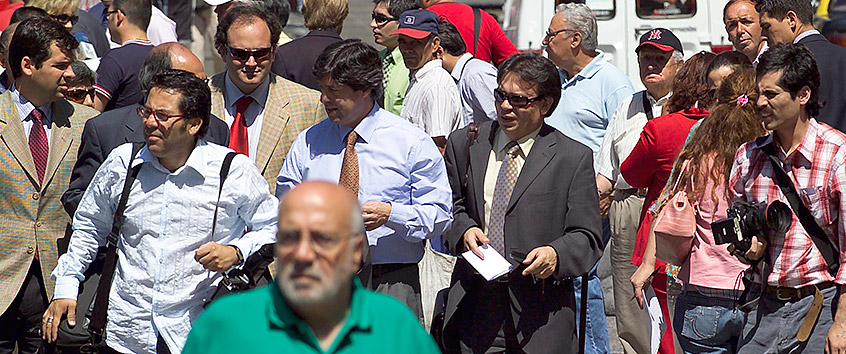
 Social Sciences
Social Sciences
Economists, lawyers, sociologists and political scientists at the UFZ analyse how different stakeholders interact within certain societal basic conditions, rules, standards and values – the so called institutions –, but we must first identify and understand these. We examine negotiation processes between stakeholders (also referred to as governance), through which for example decisions on the use and organization of landscapes might be made. We develop policy instruments such as regulations, charges or tradable permits and attempt to clarify, who must be informed or advised on certain issues, so that knowledge and insights may also be used in decision making processes.A key question is what causes societal transformation processes.
Since many environmental issues and conflicts are at the interface between ecology and economics, it is important to understand how ecological and economic factors interact. Therefore, sociologists of the UFZ are developing integrated methods of analysis together with natural scientists, to arrive at an overall evaluation of alternative decision possibilities. They combine different methods of analysis such as risk analyses, cost-benefit analyses and conservation analysis. They provide a structure for decision-making processes and consider complexity, uncertainty and knowledge gaps. Models and simulations, that help to describe and project complex processes in the environment more reliably, can therefore be used
in the dialogue between scientists and decision makers from politics and management.
Our goal is a better understanding of human environmental behavior. By taking a more applied approach to environmental research and putting it into a societal context, the UFZ strives to identify ways to improve the conditions and implementation possibilities for environmentally compatible and socially acceptable lifestyles and management practices.
Scientists of the Cross-Sectional Competence "Social Sciences" deal with the topics land use, biodiversity, renewable energies, urban transformations and sustainable use of water resources.
At the UFZ, social science research is part of the following so-called Integrated Projects (IPs):
On the level of the Helmholtz Association, the scientists of the UFZ´s Cross-Sectional Competence "Social Sciences" are involved in the following research topics:
